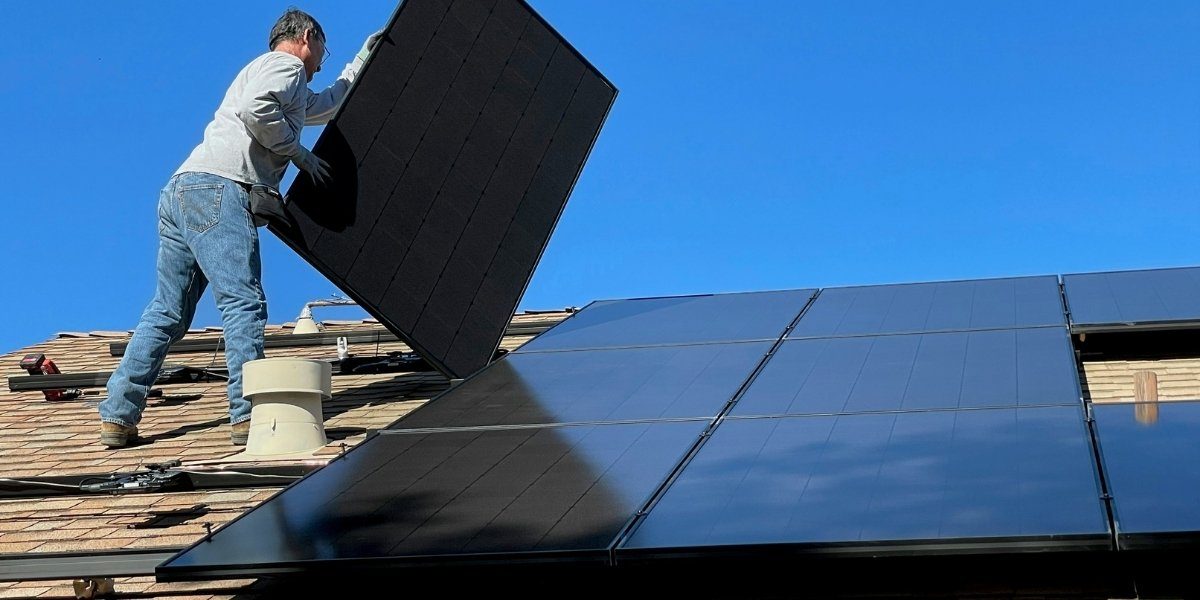Homeowners worldwide are turning to solar panels as a reliable energy solution, offering cost savings, sustainability, and energy independence. With advances in solar technology and increasing affordability, more households are choosing solar power to reduce reliance on traditional electricity sources. Understanding the economic, environmental, and practical benefits of installing solar panels can help homeowners make informed decisions about renewable energy.
Read Also: Effective Conflict Resolution Strategies for the Workplace
How Do Solar Panels Work?
Solar panels convert sunlight into electricity through photovoltaic (PV) cells, which absorb solar energy and transform it into direct current (DC) power. An inverter then converts DC power into alternating current (AC), the type of electricity used in homes. Any excess energy generated can be stored in a solar battery or sent back to the grid, depending on the system setup.
Many homeowners choose grid-tied systems, allowing them to stay connected to the power grid while reducing their overall electricity costs. Off-grid systems, equipped with battery storage, offer complete energy independence, making them ideal for remote areas.
How Can Solar Panels Reduce Electricity Bills?
One of the biggest advantages of solar panels is the potential for significant energy savings. By generating electricity from sunlight, homeowners can offset or eliminate their monthly utility bills. The exact savings depend on factors such as solar panel efficiency, household energy consumption, and local electricity rates.
Many regions offer net metering programs, allowing homeowners to sell excess electricity back to the grid, further reducing their bills. In areas with high electricity costs, a well-designed solar power system can pay for itself in just a few years, making it a smart financial investment.
What Incentives Are Available for Solar Panel Installation?
Governments and utility companies worldwide offer financial incentives to encourage the adoption of solar panels. These incentives include:
- Tax Credits: Many governments provide tax credits for installing solar energy systems, reducing upfront costs.
- Rebates: Some utility companies and local programs offer cash rebates to homeowners who install solar panels.
- Solar Renewable Energy Certificates (SRECs): In certain regions, homeowners can earn credits for the energy they produce and sell them to utility companies.
These incentives make solar panels more affordable, helping homeowners recoup their investment faster. Checking local regulations and available programs can maximize financial benefits.
How Do Solar Panels Increase Home Value?
Homes equipped with solar panels are often more attractive to buyers due to lower energy costs and sustainability features. Studies show that homes with solar energy systems sell faster and at higher prices than those without.
Prospective buyers see solar panels as a long-term investment, reducing their future electricity expenses. Additionally, as energy efficiency becomes a priority for homeowners, properties with solar installations are expected to gain even more value over time.
Are Solar Panels an Environmentally Friendly Choice?
Switching to solar energy significantly reduces a household’s carbon footprint. Unlike fossil fuels, solar power generates electricity without emitting greenhouse gases or air pollutants. By installing solar panels, homeowners contribute to:
- Lower carbon emissions by decreasing reliance on coal and natural gas.
- Reduced water consumption since solar energy production requires little to no water, unlike traditional power plants.
- Less air pollution, leading to improved air quality and overall health benefits.
Choosing solar panels supports global sustainability efforts while providing a renewable, clean energy source for daily use.
How Durable and Low-Maintenance Are Solar Panels?
Modern solar panels are built to withstand harsh weather conditions, including heavy rain, snow, and extreme temperatures. Most panels have a lifespan of 25 to 30 years, making them a long-term energy solution.
Routine maintenance is minimal, usually limited to occasional cleaning to remove dust or debris. Many manufacturers offer warranties of 20 years or more, ensuring long-term performance and reliability.
Can Solar Panels Provide Backup Power During Outages?
Homeowners seeking energy security can pair solar panels with battery storage to maintain power during blackouts. A solar battery system stores excess energy generated during the day for use at night or when the grid goes down.
This feature is particularly beneficial in areas with frequent power outages, offering peace of mind and uninterrupted access to electricity. Battery storage can also help reduce dependency on the grid, making homes more self-sufficient.
Read Also: Cultivating Community: Atlanta’s Growing Movement in Urban Farming and Community Gardens
What Should Homeowners Consider Before Installing Solar Panels?
Before making the switch to solar energy, homeowners should evaluate:
- Roof Condition: A strong, durable roof is necessary to support solar panels for decades.
- Sunlight Exposure: Homes with unobstructed sunlight receive maximum energy benefits.
- Energy Needs: Understanding electricity consumption helps determine the right solar panel system size.
- Local Regulations: Some areas require permits and approvals before installation.
Consulting a solar energy expert can provide tailored recommendations and ensure a smooth installation process.
Published by Drake M.








